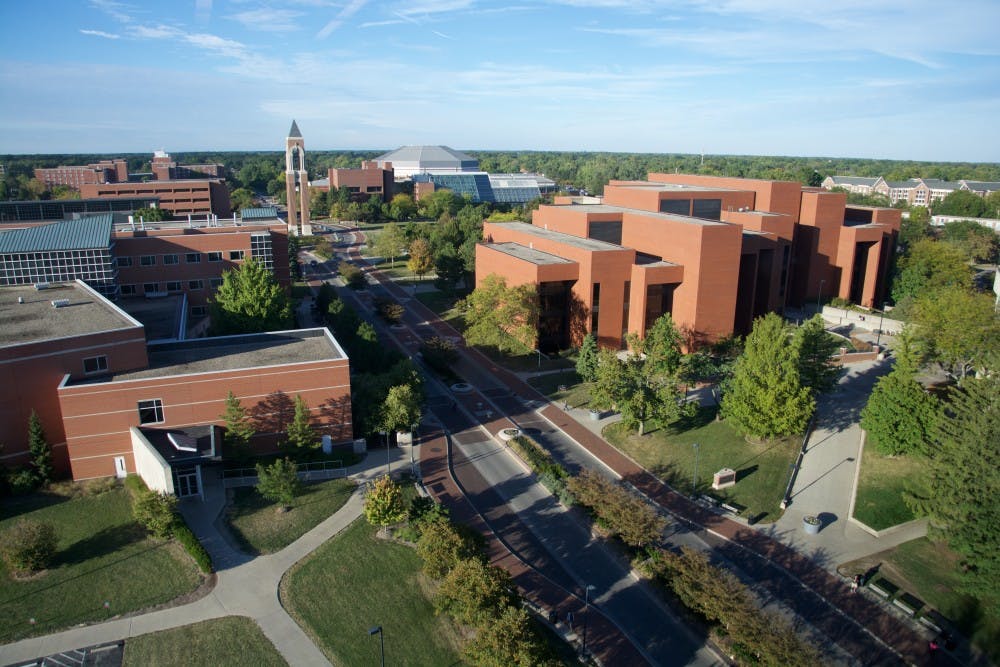Ball State is no longer charging students for graduating outside of the preferred four-year window, as of the 2015-16 school year.
The excess credit hour fee, which was paid by resident undergraduate students who had completed more than 144 credit hours in more than four calendar years without obtaining a degree, was adopted in 2011. For each exceeding credit hour, students were charged $150.
However, it was eliminated by the Board of Trustees in 2015, said Bernard Hannon, vice president for Business Affairs and treasurer, though there was no formal announcement by university officials regarding the change.
“The purpose of the fee was to encourage on-time (within 4 years) graduation from resident students,” Hannon said.
The campus-wide policy was an attempt to improve student retention. In a report released by the Indiana Commission for Higher Education (ICHE), Ball State’s four-year graduation rates increased by 12.1 percentage points, from 32.6 percent in 2009 to 44.7 percent in 2014.
As a result, Ball State experienced the largest five-year increase in on-time graduation rates of any public institution of higher education in the state, according to the same ICHE report.
Over the same time period, Purdue University's West Lafayette campus increased by 11.5 percentage points, and Indiana University-Bloomington saw a 10.1 percentage point gain. The state's overall rate rose by 6.7 percentage points.
"This significant progress towards increasing our graduation rates at Ball State reflects the strong commitment of all of our campus community to our students’ success," President Paul W. Ferguson said in a statement in July. "Consistent with our Centennial Commitment strategic plan, we have developed a concerted effort to increase our four-year graduation rate to at least 50 percent by Ball State’s 100th anniversary in 2018.”
The university collected $129,225 in excess credit hour fees before it was eliminated, Hannon said.
Trustees also approved reducing the number of credits required to graduate for most degrees from 126 credit hours to 120 credit hours, coupled with a $500 completion scholarship to resident students who complete their degree in 4 calendar years or less.
Since 2011, the university has paid $1.6 million in completion scholarships to students.
Senior interior design major Haylee Moscato won’t be awarded a completion scholarship, but she said being relieved of excess credit hour fines is a “big deal” for those in majors that may require students to study at the university for more than four years.
“In my major, the program has to begin during the fall semester, so anyone who doesn’t start in time is going to be behind by at least a year,” Moscato said. “If we’re getting charged for classes that we actually need to complete our degree, I’m not sure if that’s completely fair.”
Moscato transferred from Southern Illinois University in 2013 and said, due to her accumulation of credit hours before she arrived at Ball State, she would have been charged for credit hours during the entirety of her fifth year at the university.
“It’s extremely stressful to think that my continued education in my major towards my degree could be even more expensive,” she said. “Thankfully, I don’t have to worry about that now.”





